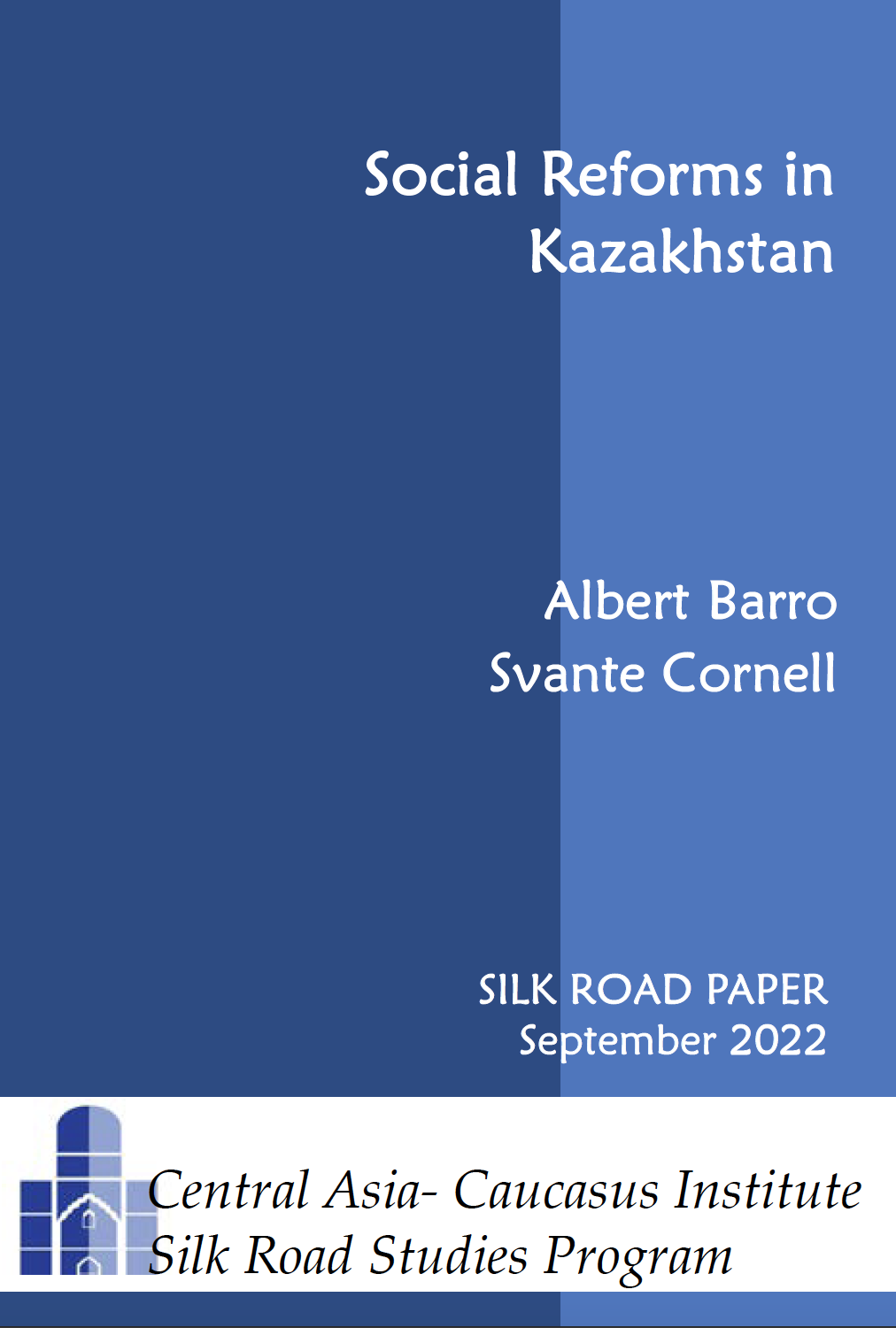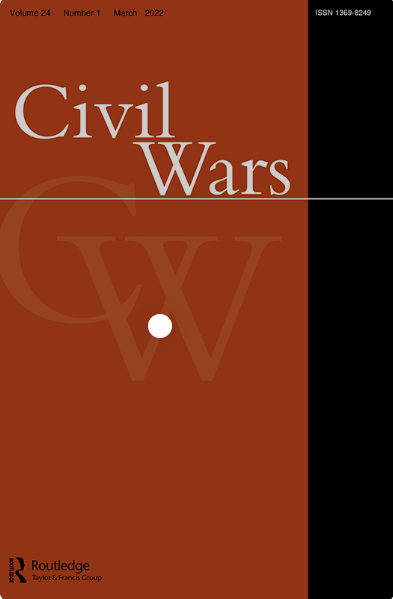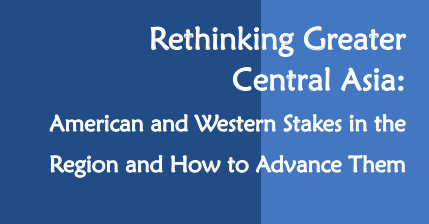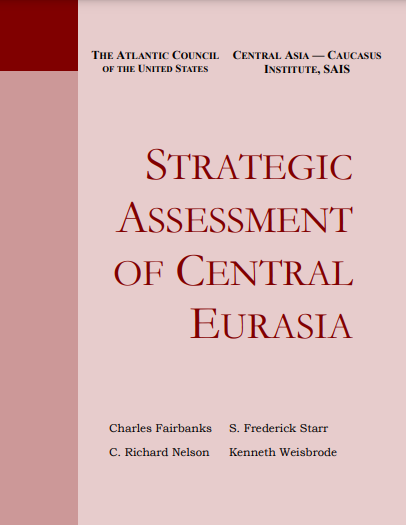Social Reforms in Kazakhstan
By Albert Barro and Svante E. Cornell
Central Asia-Caucasus Institute & Silk Road Studies Program
Silk Road Paper
September 2022
 Since President Kassym-Jomart Tokayev came to power, a series of reform packages focusing mainly on the political and economic sectors have been launched in Kazakhstan. But as has been seen in instances of public dissatisfaction over recent years, social issues are at the heart of the concerns of the population of Kazakhstan – a population that saw great improvements in living standards from 1992-2008, but somewhat of a stagnation since then. Having achieved middle-income status, many people in Kazakhstan now focus increasingly on the quality and accessibility of education, healthcare, and social protection. In his September 1, 2022, address to the nation, President Tokayev acknowledged this priority by focusing considerable attention to reforms in the social sector that would improve education, healthcare and social protection and in particular provide a more equitable delivery of services in these areas to the population.
Since President Kassym-Jomart Tokayev came to power, a series of reform packages focusing mainly on the political and economic sectors have been launched in Kazakhstan. But as has been seen in instances of public dissatisfaction over recent years, social issues are at the heart of the concerns of the population of Kazakhstan – a population that saw great improvements in living standards from 1992-2008, but somewhat of a stagnation since then. Having achieved middle-income status, many people in Kazakhstan now focus increasingly on the quality and accessibility of education, healthcare, and social protection. In his September 1, 2022, address to the nation, President Tokayev acknowledged this priority by focusing considerable attention to reforms in the social sector that would improve education, healthcare and social protection and in particular provide a more equitable delivery of services in these areas to the population.
In the education sector, Kazakhstan has a history of large and comparatively successful reforms. The Bolashak (future) program, launched almost immediately following independence, provided opportunities for high-achieving students to study abroad, and over ten thousand have done so. But Kazakhstan’s reforms have not focused solely on higher education. One of the most successful programs has seen the rollout of nearly universally available preschool education, and efforts to improve the status, pay, and training of teachers in primary and secondary education. Kazakhstan joined the Bologna process, and the implementation of nternational standards has done a lot to improve the education system.
Kazakhstan also invested in elite institutions – the Nazarbayev Intellectual Schools and Nazarbayev University, which have catered to high-achieving students. These institutions have obtained ample resources and have been highly successful – NIS scores in PISA tests, for example, are high above the average in OECD countries. Kazakhstan’s difficulty has been to replicate this success across the width of the education system. Access to education in rural and remote areas remains difficult. And whereas NIS and NU have benefited from academic and financial autonomy, the same is not the case for regular schools, whose principals have much less freedom to run their institutions the way they see fit. In other words, the rest of the public school systems suffers from state bureaucracy. And regular schools – particularly in rural and remote areas – lag far behind the NIS in standardized testing. This should come as no surprise given the disproportional part of the education budget that is allocated to the NIS and NU.
The question going forward is to what degree the NIS and NU model can be replicated in the rest of the education system – which does not benefit from having selected the best students and given them the most resources.
Human resources are a particular challenge: finding qualified teachers for the needs of Kazakhstan has proven difficult, and is made even harder by the government ambition to develop trilingualism: that not only should
Kazakh, Russian and English be taught, but that certain subject matters should be taught in these languages. While the initiative is laudable, in practice the country so far lacks teachers with language skills to be able to
teach in all three languages. This suggests that some initiatives in the education sector may have been overly ambitious; but it should be recalled that Kazakhstan has aimed high; and even if it has not quite met its own
ambitions, the initiative has nevertheless produced results as can be seen from the rapid spread of English proficiency in the country.
Healthcare reforms in Kazakhstan are in many ways similar to the education sector. Certain reforms have aimed very high and proven remarkably successful. Capabilities at the high end have been developed, including a medical school at Nazarbayev University, advanced cancer treatment and research, and the development of an indigenous pharmaceutical industry. In addition, Kazakhstan has rolled out a compulsory health insurance system that is sustainable in the long run. Just as in the education sector, however, the difficulty has been in scaling these advances up to meet the needs of society as a whole. One challenge has been to provide adequate primary healthcare services that run independently of major hospital systems. Another has been to train enough medical staff to provide adequate coverage of the population. Indeed, Kazakhstan needs to double the ratio of doctors per capita to meet the OECD average. In particular, providing adequate access to medical services in rural and remote areas has proven difficult to implement.
Still, the advances are visible. Before the pandemic, Kazakhstan saw rapidly improving life expectancy numbers, reaching 73 years, a strong improvement over numbers in the 1990s. While the pandemic was a temporary setback, the country has also learnt valuable lessons on the weaknesses of its healthcare system.
In the field of social protection, Kazakhstan has succeeded in putting in place an adequate system to protect the unemployed, the disabled, as well as mothers and children. In addition, a strong and sustainable pension system has been introduced. Still, the country faces challenges: an aging population that will complicate matters, and the continued persistence of high-level corruption and mismanagement of assets and investments.
Social reforms are intimately linked with the broader reform agenda that President Tokayev has made into a centerpiece of his presidency. The success of social reforms will depend in no small part on the development of the broader management system in the country and on the nature of Kazakhstan’s state institutions. The potential of social reforms can only be fulfilled if the political reforms aiming to change the nature and culture of state institutions, to develop a new reality where the state exists not for its own sake, but to provide services to the population of the country. Given President Tokayev’s stated commitment to seeing all of these reforms through, it remains to be seen how successful Kazakhstan will be along this path.
Religion as a Factor in Caucasian Conflicts
Svante E. Cornell
Civil Wars,
Vol. 1 no. 3, 1998
 The many conflicts that have raged in the Caucasus since the end of the 1980s have often been depicted in the media and academia as basically religous in character. The religious differences between parties to conflicts are empjasized and often exaggerated. In particular, the Caucasus has been taken as an example of the 'clash of civilzations' supposedly under way. This article seeks to challenge this perception of the Caucasian conflicts, arguing that religion has played a limited role in conflicts that are actually ehnopolitical and territorial in character. The article argues that seldom are religious bodies of thinking used to legitimize conflict behaviour in this region -- there has been no Jihad in the Caucasus, for example -- nor has the politicization of the parties to a conflict been underpinned primarily by religious identity or theological perspetives. As such, religious conflict can not be spoken of. Furthermore ther has occured no rallying of outside powers along religious lines; quite to the contrary empirical evidence shows hat religious has had little impact -- especially when compared to ethnicity -- in the international ramifications of these conflicts.
The many conflicts that have raged in the Caucasus since the end of the 1980s have often been depicted in the media and academia as basically religous in character. The religious differences between parties to conflicts are empjasized and often exaggerated. In particular, the Caucasus has been taken as an example of the 'clash of civilzations' supposedly under way. This article seeks to challenge this perception of the Caucasian conflicts, arguing that religion has played a limited role in conflicts that are actually ehnopolitical and territorial in character. The article argues that seldom are religious bodies of thinking used to legitimize conflict behaviour in this region -- there has been no Jihad in the Caucasus, for example -- nor has the politicization of the parties to a conflict been underpinned primarily by religious identity or theological perspetives. As such, religious conflict can not be spoken of. Furthermore ther has occured no rallying of outside powers along religious lines; quite to the contrary empirical evidence shows hat religious has had little impact -- especially when compared to ethnicity -- in the international ramifications of these conflicts.
Russia Needs Its Own Charles de Gaulle
By S. Frederick Starr
July 22, 2022
https://nationalinterest.org/feature/russia-needs-its-own-charles-de-gaulle-203642

Win or lose, Putin and his weakened and his discredited system will not long survive. No one knows what will come next, but it is clear what should follow. Russia needs its own Charles de Gaulle, the French general-turned-president who got France out of its disastrous war in Algeria.
Back in 1958 when de Gaulle came out of retirement to become president, France faced an armed uprising by ethnic Algerians seeking independence. France had sent 600,000 soldiers there, who were supported by a million pieds noir, French who had settled there. The strife led to a terrible loss of lives, a revolt in the French army, and a fracturing of society that is still evident today. Far from conceding to such domestic forces, de Gaulle went himself to Algeria, ordered French troops there to cease backing the rebellious Committee of Public Safety, and then declared a ceasefire and granted independence to the Algerians, to be confirmed by a later vote, which took place on 1 July 1962. In its aftermath, 900,000 pieds noir abandoned Algeria.
De Gaulle succeeded because he envisioned a better future France without Algeria than with it and convinced a majority of French citizens that he was right. The best past forward for Putin’s successor is to do the same in Russia.
To be sure, Russia is not France and Ukraine is not Algeria. Ukraine had been ruled by Moscow down to 1991 but is now a sovereign state and a member of the United Nations. Algeria in 1958, by contrast, remained an integral part of the French state. Separation was even harder for Algeria than for Ukraine, which gained independence thanks to the collapse of the USSR. Most important, de Gaulle came to power just as colonialism was everywhere waning, while Putin came to power with the intent purpose of reviving it. De Gaulle took positive action with respect to France’s colonies while Putin used armed force to recapture two provinces of the Republic of Georgia and Ukraine’s Crimea.
Other aspects of de Gaulle’s approach are directly relevant to Russia. De Gaulle pulled out of Algeria not because he thought France was no longer a major power but because he was a nationalist who did not want to lose the rest of France’s empire. Similarly, a Russian withdrawal from Ukraine may be the only way Moscow can continue to hold onto the Kuril Islands, the Russian far East, and even Siberia. For the same reason Russia’s great nationalist writer Alexander Solzhenitsyn, writing as early as the 1960s, wanted Soviet Russia to “show good sense” and give up its non-Russian republics, including Ukraine. “Those lands that do not want to stay” should be allowed to leave. Why, he asked, should Russians “continue to pay for the mistakes of [their] fathers”?
In spite of such sound advice, Putin seems likely to barge ahead, and his immediate successor may well choose the same course. However, it is already clear that this will further harden Western opposition to Moscow’s imperial program, lead to the deaths of further thousands of young Russians at a time when Russia’s population is already diminishing, vitiate the Russian economy, and exacerbate tensions within Russian society. Admit it or not, Russia is at an impasse. Like France in 1958, it faces a fundamental choice between policies of the past and viable strategies for the future.
Putin’s Russian supporters may fear retribution when he leaves or is removed. Faced with the same problem de Gaulle issued a general amnesty, which covered the entire French army. Other Russians have convinced themselves that a “de Gaulle gambit” in Ukraine would rob Russia of its glorious past and diminish its role in the future. This is nonsense. Following the withdrawal from Algeria, de Gaulle launched his “politics of grandeur,” which featured staunch opposition to the United States and his two vetoes of Britain’s entry into the European Economic Community, later the EU. To be sure, Russia will have no choice but to abandon hope of reconquering any of the former Soviet republics that are now sovereign states, and it may have to renounce claims on some territories that are now within its borders. But this will still leave Russia with a vast territory and a large and talented population that can refocus its attention on the future rather than remain fixated on the bygone past.
Putin has long since passed the point at which he could do an about-face and pull a de Gaulle gambit in Ukraine. He is a small man, literally as well as figuratively, standing at 5’7” tall, as compared to de Gaulle’s 6’4.” He directs his plaudits not to de Gaulle but to Russia’s expansionist Tsar Peter the Great, who was 6’8.” Putin’s recent actions have further diminished his stature in the eyes of many thoughtful Russians, including many in the army and government.
There is already much speculation as to what or who might follow Putin. French hard-liners point to the fact that long after de Gaulle granted Algeria autonomy and even after Algerians voted overwhelmingly for it, some four-hundred French pieds noir were massacred in the Algerian city of Oran. Frustrated Russian troops have already committed genocide in Ukraine. Could Ukrainian anger also reach such a pitch?
Many alternatives to Putin can already be detected in Russia. These include military hard-liners who resent Putin’s failure to declare all-out war against Ukraine and want him to do so today, military reformers who want to pull back and rebuild their depleted forces and equipment, and many civic forces, including the new class of business leaders, followers of the jailed Alexei Navalny, and other individuals and groups.
Whoever emerges from the inevitable turmoil in Russia, he, she, or they will have to address the open wound that Putin’s Ukraine gambit has opened in the Russian polity itself. Far the best solution, for Russia and the world, would be for his successor to follow Charles de Gaulle’s model in Algeria and convince Russians themselves that their country will have a far better future without Ukraine than is possible with it.
S. Frederick Starr is founding chairman of the Kennan Institute and chairman of the Central Asia-Caucasus Institute.
Rethinking Greater Central Asia: American and Western Stakes in the Region and How to Advance Them



